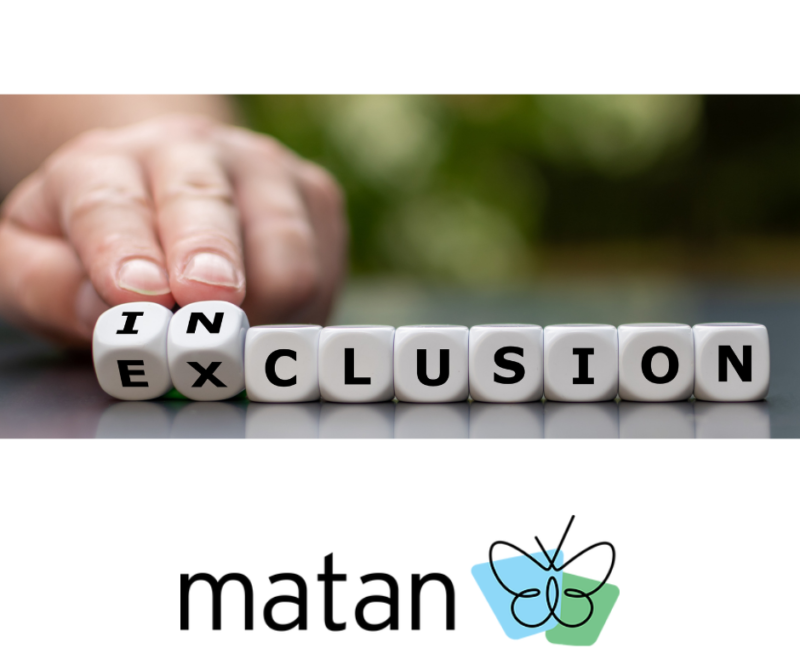Opinion
SPONSORED
What Stands Before Us: A JDAIM Charge for 2021
By Meredith Polsky
“And so, we lift our gazes not to what stands between us, but what stands before us.” – Amanda Gorman, “The Hill We Climb”


[This is the first article in a 4-part series sponsored by The Covenant Foundation and written by Covenant Foundation Award recipients and grantees.]
On a cold winter day in January, during a Pandemic, with the surrounding streets closed and crowds nowhere to be found, a young woman on the presidential inauguration stage touched the souls of millions of Americans. Amanda Gorman’s poem, “The Hill We Climb” was delivered with exquisite strength and brilliance, and the discussions that have followed have been almost as engaging.
Of course, this poem was written and delivered in a political context, but to me, that’s only part of the story. As a Jewish educator working in the field of Jewish Disability Inclusion, I am always thinking about where the intersection lies between current events, weekly Torah portions, everyday conversations and inclusion. It’s rare that I don’t see any overlap – afterall, disability inclusion is all about community, cultural awareness and responsibility. What among these is not a part of everyday human existence?
When I reflect on Gorman’s words, “And so, we lift our gazes not to what stands between us, but what stands before us,” I think of people’s tendencies to talk about “us and them” – “people with disabilities” and “people without disabilities” – people who need accommodations and people who don’t. I understand it; we have each only lived our own experience. We are not always thinking about how each and every person can leverage the power of community in order to make sure everyone gets what they need. But I accept Gorman’s words as a challenge to each of us to consider what is possible.
In my world, the month of February is paramount. For the past 15 years, February has been known as Jewish Disability Awareness, Acceptance and Inclusion Month (JDAIM). It’s a month that recognizes the strides the Jewish community has made towards equal access for each individual, regardless of ability or disability – and acknowledges the work yet to be done.
As we turn the calendars from 2020 to 2021, we prepare for the first (and hopefully last) “pandemic JDAIM.” Collectively, we have spent almost an entire year isolated from routines and traditions that had become woven into the fabric of our lives. In so many ways, this has been an incredibly challenging time for our country, for our world and for our Jewish communities. It has also, however, demonstrated the need to eradicate the lines of “us and them.” During the past year, every single one of us has needed an accommodation in order to be successfully included in our school, work, family and larger communities. Our Jewish organizations have had to be creative and resourceful in order to include each member, either through virtual or physically distanced opportunities. Nobody went into this pandemic with all of the tools they needed. Not every tool worked for every person. We worked together to ensure accessibility in ways that we never did before the pandemic.
I always say that “special education is just really good education.” We know that one size does not fit all and that we must think about multiple points of entry and access in order to meet everyone’s needs. When we implement modifications that help one member of the community, we can be sure that the effect is multiplied.
In an interview Amanda Gorman gave after delivering her inauguration poem, she talked about the power of words. In this very unusual Pandemic JDAIM, we know that we each – individually and collectively – must elevate our vision for inclusion by using our words – speaking out and asking what we can do to make sure everyone is included. We must recognize that inclusion is not about one group of people or one cadre of professionals, and that what lies before us is infinitely more important than what stands between us.
**
Visit the Matan website for free resources to be used during JDAIM and throughout the year. Coming soon! Matan’s B’nai Mitzvah Inclusion Guide, created to help ensure that every teacher and tutor has the ability to create meaningful and inclusive b’nai mitzvah experiences for all learners.
Meredith Polsky founded Matan (www.matankids.org) in 2000 and serves as Matan’s National Director of Institutes and Training, as well as a Child and Family Therapist and Selective Mutism Specialist at Growing Minds Child and Family Therapy Center. Meredith is a nationally sought-after speaker on Jewish Special Education. She holds a Master’s degree in Special Education from Bank Street College, a Master’s degree in Clinical Social Work from Columbia University and a graduate certificate in Early Intervention from Georgetown University. Meredith is a 2017 Covenant Award recipient, and co-author of the award-winning children’s books I Have a Question about Death, I Have a Question about Divorce, I Have a Question about Cancer, and I Have a Question about Coronavirus (Jessica Kingsley Publishers, 2017, 2018, 2019 and 2020, respectively).












